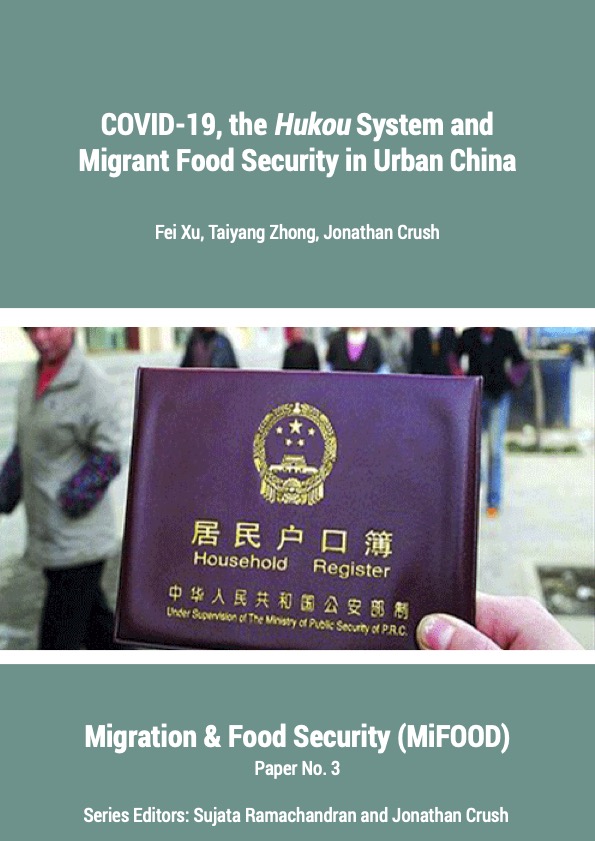The COVID-19 pandemic has issued significant challenges to food systems and the food security of urban and mobile populations. COVID-19 has had a disproportionate negative impact on household food security. In China, there have been no studies to date specifically focusing on the food security of migrants during the pandemic. This paper uses data from an online questionnaire survey of food security in Nanjing City, China, conducted in March 2020 to examine the different experiences of migrant and non-migrant households. The paper situates the research findings in the general literature on the migrant experience more generally during the pandemic and the specifics of the Chinese rural-urban migration policy of hukou. Using multiple linear regression and ordered logistic regression, the paper examines the impact of migration status on food security during the pandemic. The paper finds that during the COVID-19 outbreak in 2020, households without local Nanjing hukou were more food insecure than those with Nanjing hukou. These differences related more to the absolute quantity of food intake, rather than reduction in food quality or in levels of anxiety over food access.

